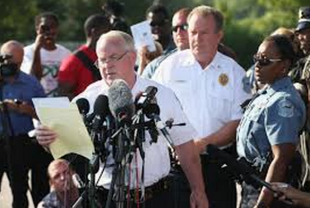
Since Michael Brown was shot and killed by a police officer in Ferguson, Missouri, local law enforcement and much of the mainstream media have been playing by an old script…

Since Michael Brown was shot and killed by a police officer in Ferguson, Missouri, local law enforcement and much of the mainstream media have been playing by an old script…
Last Thursday, the rapper Nelly went on the air of his hometown hip-hop radio station, St. Louis’s Hot 104.1, to announce a college scholarship fund for local teens in honor of Michael Brown, the unarmed black 18-year-old killed by a policeman earlier this month.
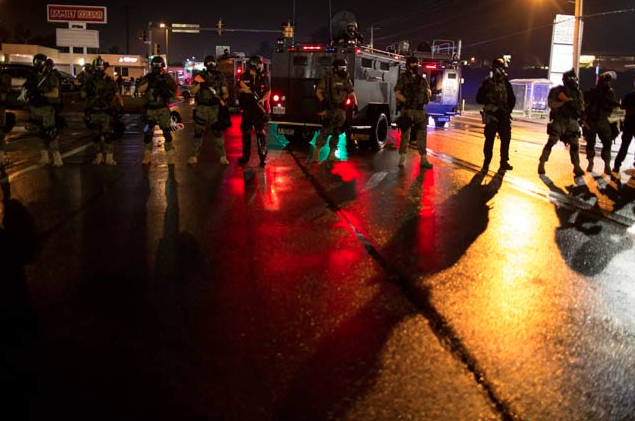
The recent killing and then demonization of an unarmed 18-year-old African-American youth, Michael Brown, in Ferguson, Missouri by a white police officer has made visible how a kind of military metaphysics now dominates American life.

Friday, Aug. 8, was a big day for Kizzie and Charles Davis. It was the day they opened Ferguson Burger Bar & More…

The intensive militarization of America’s police forces is a serious menace about which a small number of people have been loudly warning for years, with little attention or traction.
Events like the complete civic breakdown in Ferguson, Missouri, inevitably get shoved through political filters. They play out before a polarized public…
As outraged residents of Ferguson, Missouri continue to protest a police shooting that left unarmed African-American teenager Michael Brown dead, Ron Davis…
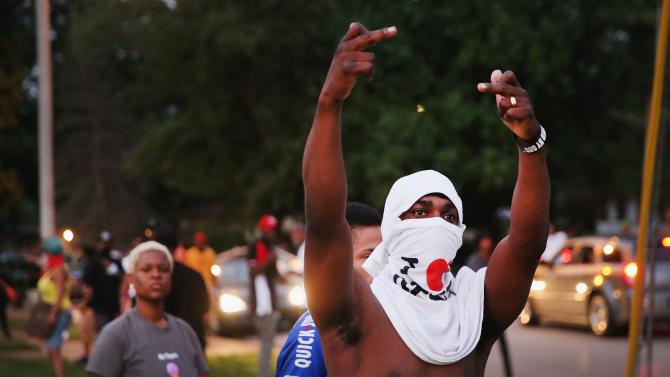
On Saturday a police officer shot a teenager named Michael Brown in Ferguson, Mo. On Sunday the world knew the teen’s name, and by Monday Ferguson was on fire.
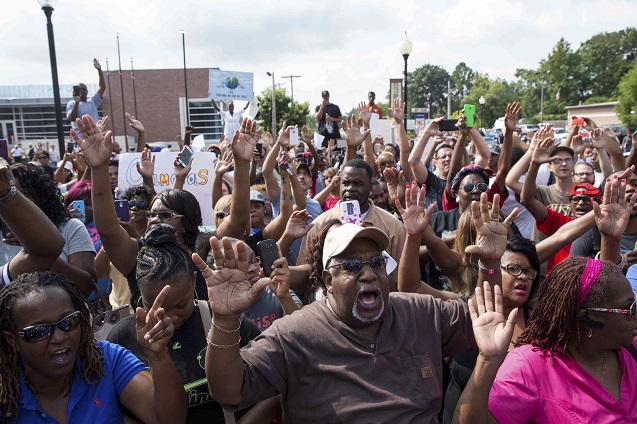
Community members gather outside the Ferguson Police Department to protest the death of Michael Brown, an unarmed black teenager killed by a police officer, in Ferguson, Missouri, August 11, 2014.
Fifty years ago, the civil rights movement in the United States made huge strides among continued setbacks. The Civil Rights Act of 1964 was signed into law, banning discrimination based…
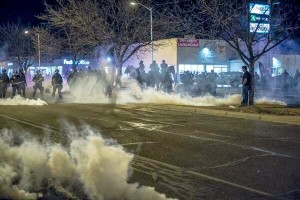
When the Albuquerque Police Department (APD) and other law enforcement agencies cracked down on protestors March 30, 2014, the city’s finest rolled out a military-style force.

The history of Black people in this country is a complex, engaging and thought-compelling history, a history of Holocaust and enduring hope; of savage enslavement and yet an unsupressable desire and demand for freedom.